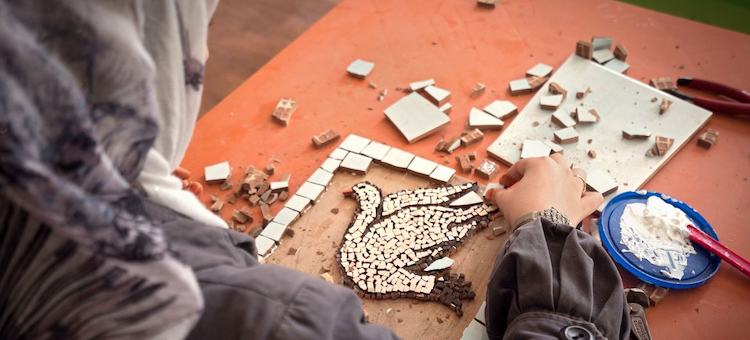
By Caroline Mawanga
NEW YORK (IDN) — Defending women’s rights and promoting greater inclusion is a proven strategy for peace and stability, UN Deputy Secretary-General Amina Mohammed told a recent Security Council Open Debate on Women, Peace and Security, which focussed on Secretary-General António Guterres’s annual report as envisaged with a landmark resolution adopted 22 years ago. (P19) GERMAN | JAPANESE TEXT VERSION PDF
Guterres noted in his report that “despite normative agreement since the year 2000 and evidence that gender equality offers a path to sustainable peace and conflict prevention, we are moving in the opposite direction. Today, the world is experiencing a reversal of generational gains in women’s rights while violent conflicts, military expenditures”.
The UN Chief added: “Recent challenges to democratic and inclusive politics show once again that misogyny and authoritarianism are often mutually reinforcing and antithetical to stable and prosperous societies. In several countries, violent extremist groups and military actors have taken power by force, revoking previous commitments on gender equality and persecuting women for speaking up or simply for going about their daily lives.”
Ms Mohammed said the perilous state of peace in our world cannot be separated from the destructive effects of patriarchy and the silencing of women’s voices. “The challenges we face—from proliferating conflicts to worsening assaults on human rights—are in many ways connected to the trampling of women’s rights and to deeply ingrained misogyny around the world.” Therefore, there is a need for also challenging the social, political, and economic structures and norms that sustain it.
The women, peace and security agenda is not just an answer to historical wrongs and marginalization but an opportunity to do things differently, she noted. “When we open the door to inclusion and participation, we take a giant step forward in conflict-prevention and peacebuilding,” Ms Mohammed said.
She called for full gender parity—including through special quotas to accelerate the inclusion of women—across election monitoring, security sector reform, disarmament, demobilization, and justice systems.
Ms Mohammed said women’s participation at all levels has played a pivotal role in changing the way the international community had approached peace and security over the past two decades. However, progress has been “far too slow”, she said, as borne out by the statistics.
For example, between 1995 and 2019, the percentage of peace agreements with gender equality provisions rose from 14 to 22 per cent. Four out of five peace accords still ignored gender.
Furthermore, women constituted, on average, just 13 per cent of negotiators, six per cent of mediators and six per cent of signatories to major peace processes during this period.
“Women’s participation in peace processes, and influence over decisions that affect their lives, continue to lag very far behind, creating a very real barrier to inclusive, durable, and sustainable peace. We must do better. And we must do it now,” she said.
In her remarks, Sima Bahous, Executive Director of UN Women, also referred to the plight of women human rights defenders who risk their lives for their communities and the planet.
Ms Bahous said the UN human rights office, OHCHR, recently reported that out of the nearly 350 individual cases of intimidation or reprisals for cooperation with the UN in the past year, 60 per cent concerned women.
UN Women surveys have also revealed that nearly a third of women civil society representatives who have briefed the Security Council have also faced reprisals.
Ms Bahous called for measures such as providing material and political support to women rights defenders and their organizations, as well as updating legislation for asylum, temporary relocation or temporary protected status for gender-based persecutions.
“And lest any think that marginalizing women keeps them safe, let us be clear: it achieves the opposite. Denying women space, access, or funding because of safety concerns emboldens perpetrators and, in their eyes, validates their tactics,” she said.
She upheld the value of women’s participation as critical to inclusive and sustainable peace and baulked at the low rate of representation in peace processes, national parliaments, and other contexts, such as COVID-19 task forces.
“We know very well what to do,” said Ms Bahous. “Quotas and temporary special measures remain our best tool to set right these damaging imbalances and promote equality in decision-making.”
Turning to fund, one of the key levers by which words become a reality, she said that investing in women’s leadership, women’s civil society organizations, and supporting women human rights defenders in conflict contexts is more urgent, more needed and makes more sense than ever.
While it was encouraging that 103 countries had adopted National Action Plans on Women, Peace and Security compared to 37 a decade ago, commitments can only fulfil their promise when they are supported and funding commensurate to the challenge.
In 2021, there was a 72 per cent shortfall in funding to prevent and respond to gender-based violence in humanitarian emergencies. The share of bilateral aid to fragile and conflict-affected contexts dedicated to gender equality remains at five per cent.
Funding for women’s organizations in conflict-affected countries, where it is needed most, declined from US$181 million in 2019 to $150 million in 2020. In Afghanistan in 2022, 77 per cent of women’s civil society organizations have not received any funding and are no longer running programmes. In Myanmar, approximately half of women’s organizations had to close following the coup.
Against this backdrop, UN Women’s Chief urged the international community to reverse this trend. “All those in a position to do so must significantly step up funding for gender equality in conflict settings. To fail to do this is to fail to live up to our claims of commitment and support.” [IDN-InDepthNews – 23 October 2022]
Photo: A woman crafts a mosaic depicting a peace dove in the Za’atari refugee camp in Jordan. © UN Women/Christopher Herwig











